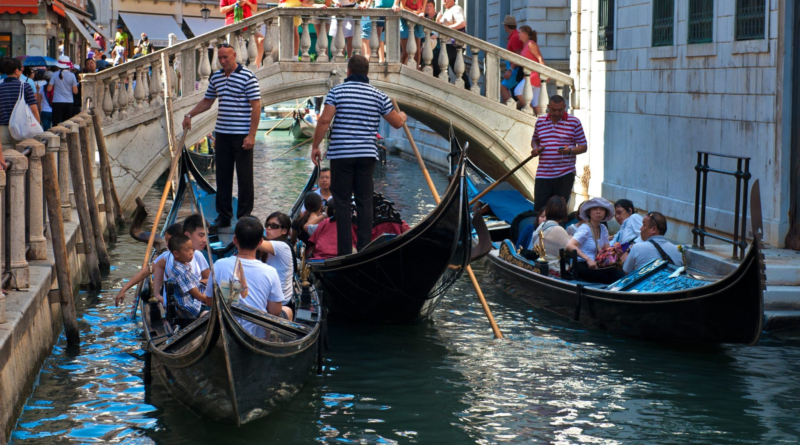Venice’s €5 daytripper tax misses the boat: What do locals think the overtourism solution actually is?
For four months earlier this year, the Italian city of Venice piloted a surcharge scheme for daytrippers. Visitors not staying in overnight accommodation had to pay €5 ($5.40) on certain days that were deemed most congested, including weekends and national holidays.
The fee was trialed as a way to ‘deter’ visitors from arriving on overcrowded days and thus help tackle Venice’s overtourism problem.
In 2023, 5.7 million people visited Venice with peak days seeing more than 80,000 arrivals. To put that in context, the historic centre of Venice now has fewer than 50,000 residents.
However, the experiment did not succeed in reducing visitor numbers to the iconic canal city. Instead, during the first 11 days of the pilot period, nearly 750,000 visitors were registered. On the same days in 2023, there were around 680,000 entries.
Despite the poor results, Venice authorities have announced the day tripper tax will return in 2025, this time doubling to as much as €10 ($10.80) on some days.
Many Venice residents have been against the entry fee from the beginning, staging protests including on the day of its launch. For campaigners, the solution to Venice’s tourism woes lies in supporting the local community.
Venice entry fee is an ‘attack on privacy’
Susanna Polloni is a campaigner with the Rete Solidale Casa organization, which fights for housing rights for Venice residents.
She highlights that the entry fee did not just affect tourists who were required to pay, but also those living in the city who weren’t.
“What reasonable reasons can justify the attack on privacy, having reduced the most beautiful city in the world to the only paid city, having forced its inhabitants to prove that they are citizens of their own city?” she says.
“The weight of overtourism has been pushed onto the lives of Venice’s citizens.”
‘Urgent’ need to reduce short-term rentals in Venice
Polloni has studied the official data from Venice’s Smart Control Room, which gathers all kinds of visitor statistics, and highlights another problem she feels authorities should be tackling instead.
The number of overnight visitors recorded is higher than the number of beds registered in the city, leading her to conclude that there are dozens of illegal short-term rentals.
There is an “indispensable urgency for the city to equip itself with a rental regulation that significantly reduces short-term rentals in the city,” she says.
Venice authorities need to invest in tourism management
For many campaigners, it is not just the number of tourists but also the kind of tourism that is damaging Venice.
Valeria Duflot set up the visitor advice website Venezia Autentica in 2015 and now advocates for a tourism model that benefits the local population.
“I believe that [the daytripper tax] is by no means enough to address the major issues caused by tourism today: the displacement of local businesses and of the local population,” she says.
“We should all see the demise of Venice, its community, and its heritage as a cautionary tale and work collectively to transform the way we measure success and engage communities in the tourism industry.”
Duflot would like to see a greater emphasis on influencing and enabling tourists to spend their time and money where it benefits the local community, economy and heritage.
For Polloni, the €5 entry fee is not just ineffective but is preventing funding from being directed towards actions to help residents.
“Other necessary and urgent measures are the renovation and assignment of vacant public housing, economic diversification to create jobs that are not in the sole channel of tourism, an improvement of local public transport and social and health services,” she says.
“Only in this way will it be possible to save the city.”




